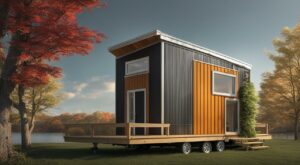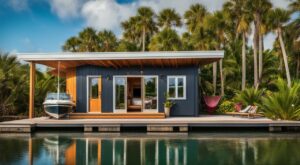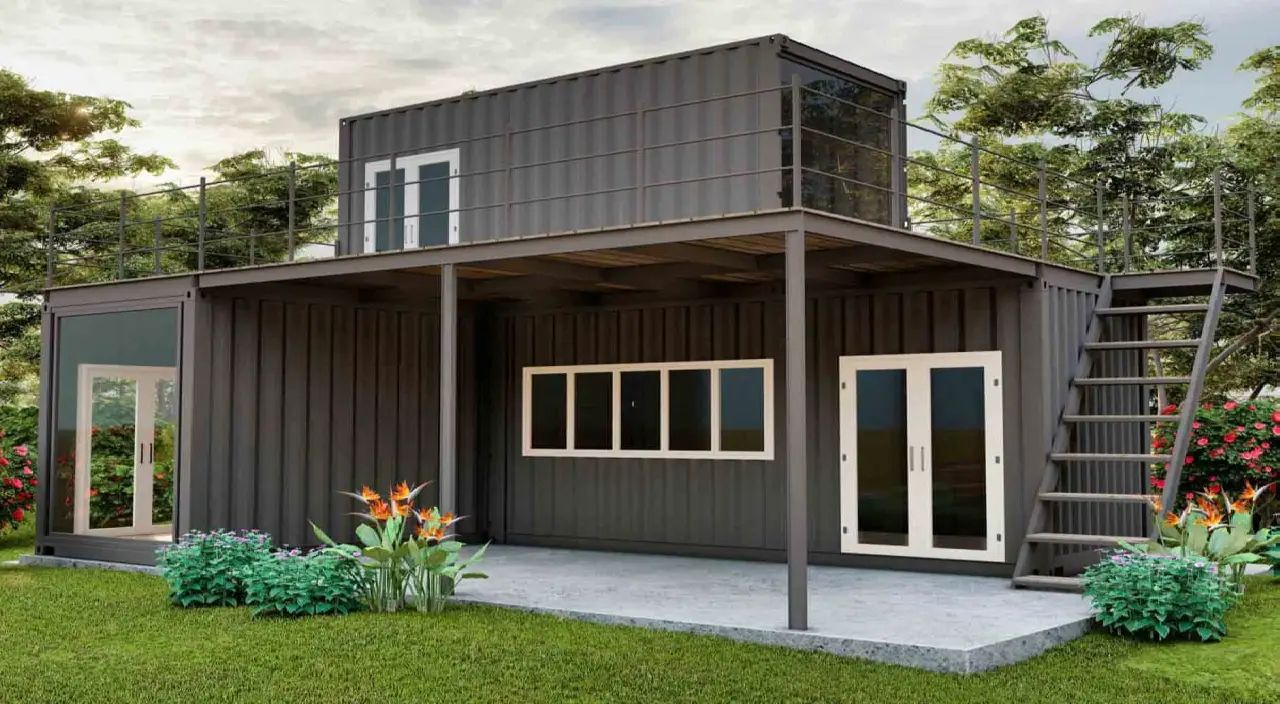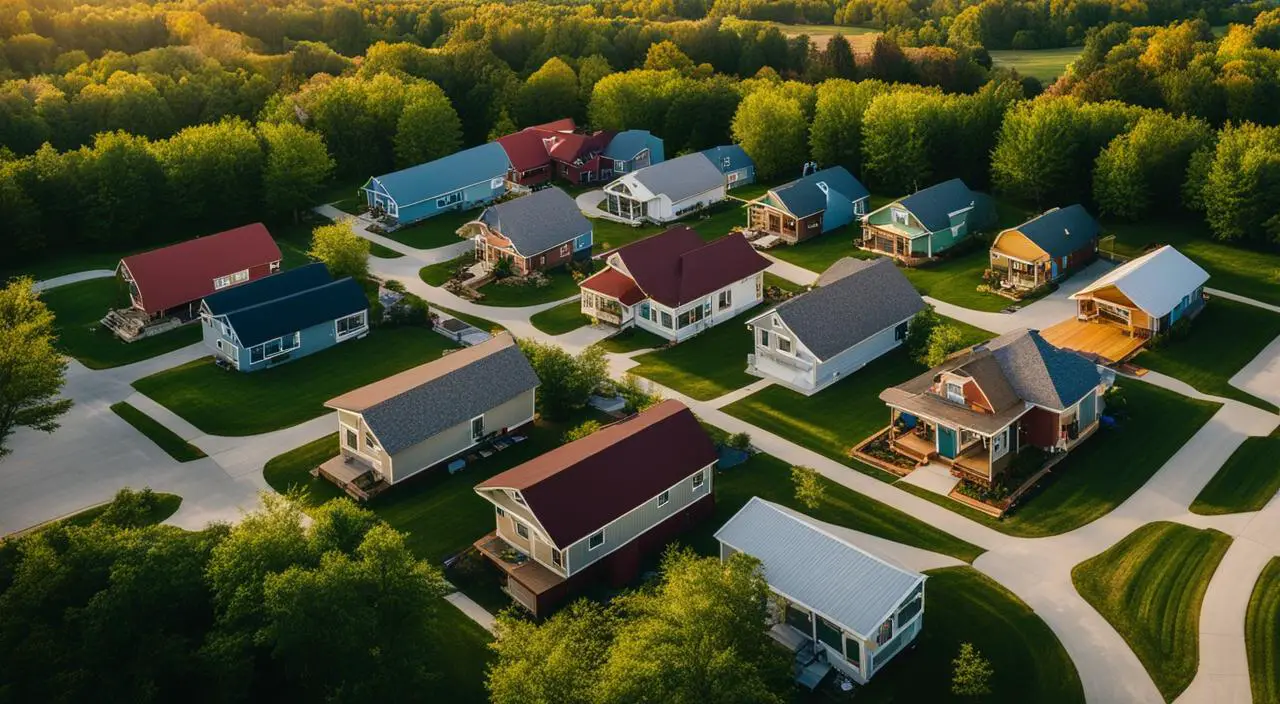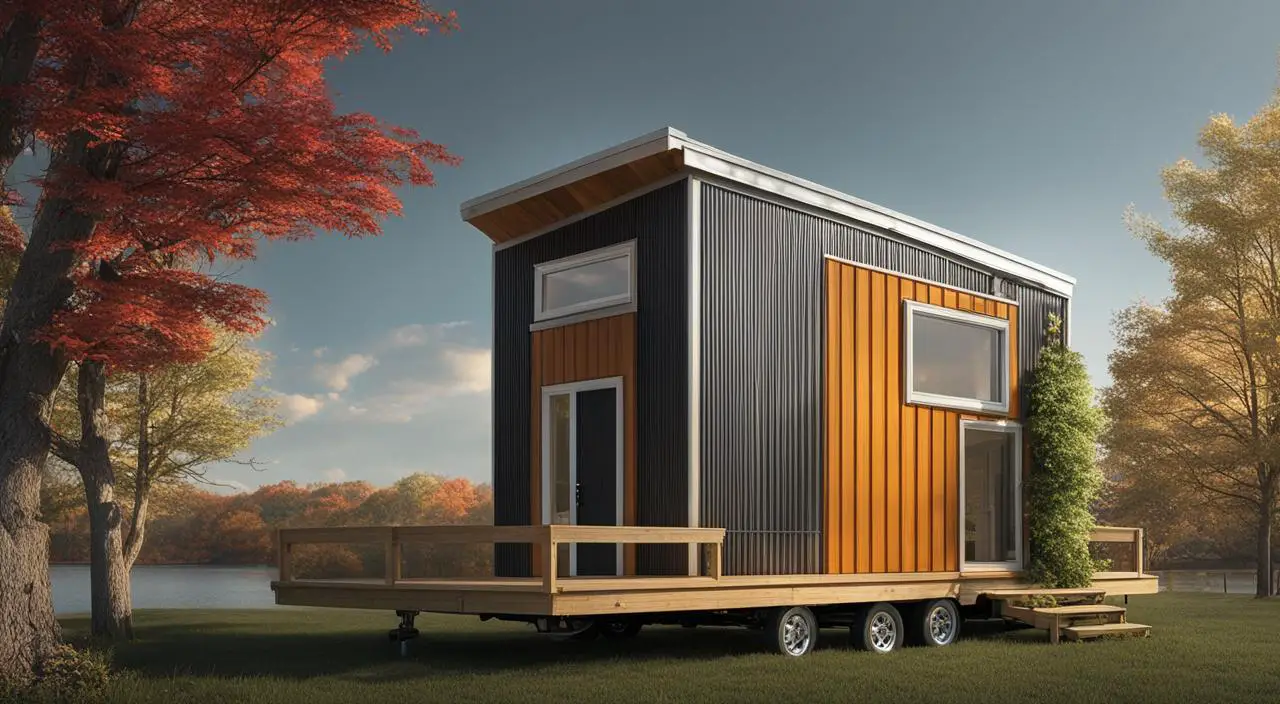Your cart is currently empty!
Tiny House Laws in Florida: Everything You Need to Know
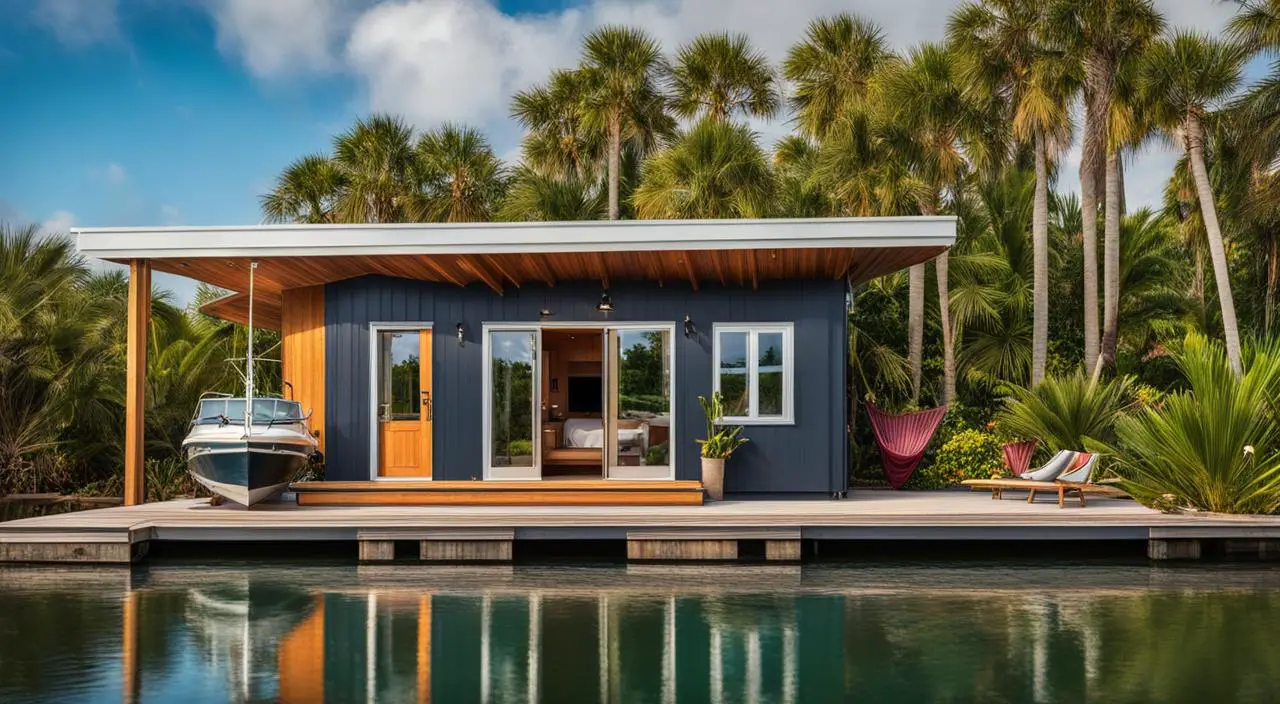
Affiliate Disclaimer: This post may contain affiliate link or links
If you’re considering joining the tiny house movement in Florida, it’s crucial to understand the laws and regulations surrounding these unique homes.
While tiny houses continue to gain popularity, they still face zoning restrictions, building codes, and other legal considerations in many states, including Florida.
Contents
In this section, we’ll provide a comprehensive overview of the tiny house laws in Florida.
We’ll cover zoning requirements, legalities, and other important considerations for those interested in living in or building a tiny house in the state.
Whether you’re a current or aspiring tiny home owner, this guide will help you navigate the legal landscape of Florida tiny houses.
Understanding Zoning Requirements in Florida
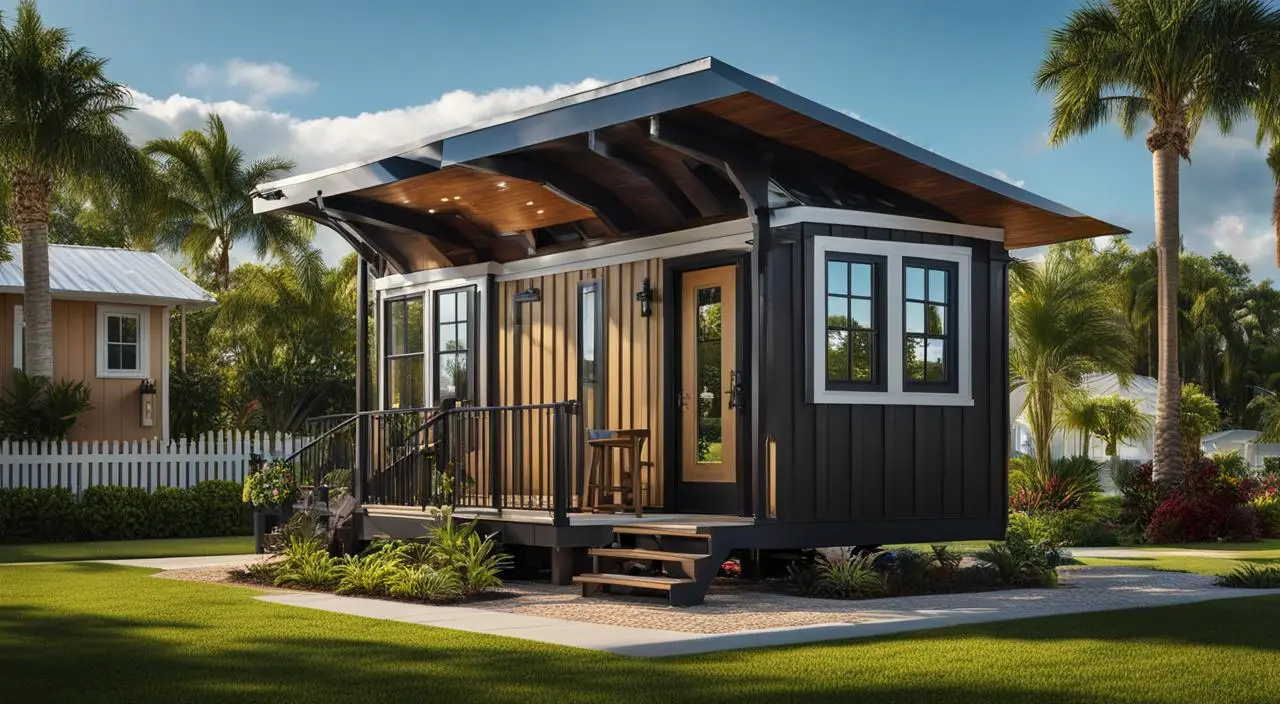
When it comes to tiny houses, one of the most important things to understand is zoning requirements.
Zoning ordinances dictate how land within a particular area can be used, whether it’s for residential, commercial, industrial, or other purposes.
In Florida, local zoning laws can greatly impact where you can place a tiny house.
Florida’s building code requires that all residential structures, including tiny houses, meet specific standards.
These standards cover everything from construction materials to roof design, ensuring that the home is both safe and durable.
However, when it comes to zoning, the requirements can vary widely depending on the area.
Some areas may have no specific regulations for tiny houses, while others may require that tiny houses be placed on a foundation or meet a minimum square footage requirement.
It’s important to research the zoning laws in your specific area before beginning construction on a tiny house.
Florida Building Code
The Florida Building Code is a set of regulations that govern construction within the state.
These regulations cover everything from building materials to structural design, ensuring that all structures built within Florida are safe and sustainable.
Tiny houses in Florida must adhere to the Florida Building Code, which can impact the design and construction of the home.
Understanding Local Zoning Ordinances
Local zoning ordinances in Florida can vary widely depending on the area.
Some areas may have no specific regulations for tiny houses, while others may require that the house be placed on a foundation or meet a minimum square footage requirement.
It’s important to research the zoning laws in your specific area before beginning construction on a tiny house in Florida.
“Zoning ordinances dictate how land within a particular area can be used, whether it’s for residential, commercial, industrial, or other purposes.”
Overall, understanding the zoning requirements in Florida is crucial for anyone interested in building or living in a tiny house.
By researching local zoning ordinances and understanding the Florida Building Code, individuals can ensure that they are constructing a legal and safe tiny house.
Legalities of Tiny House Living in Florida
Living in a tiny house offers an unconventional and minimalist lifestyle, but it comes with legal considerations that homeowners must abide by.
In Florida, tiny house owners need to comply with zoning requirements, building codes, and permitting regulations to ensure that their tiny home is legal and compliant.
Regulations: Florida has specific regulations for tiny homes, and they must comply with the state’s building codes and zoning laws.
However, these regulations can vary from county to county, so tiny house owners must research and comply with the regulations specific to their location.
House Laws: Tiny house owners in Florida must follow state and local house laws to avoid legal issues.
These laws enforce safety and health standards for tiny houses and dictate the minimum square footage for residential properties.
Tiny Homes Florida: In Florida, tiny houses are classified as dwelling units and must comply with the Florida Building Code (FBC).
The FBC outlines the building regulations and standards that all structures, including tiny homes, must comply with to ensure safe and livable spaces.
Building: Building a tiny house in Florida requires obtaining the necessary permits and adhering to the state’s building codes.
Tiny house owners must submit plans and ensure that their structure meets the minimum safety and livability standards established in the FBC.
House Wheels: Tiny houses on wheels are a popular option for those seeking mobility and flexibility in their living arrangements.
However, Florida has specific regulations for tiny houses on wheels, including size limitations, permitting requirements, and land use laws.
“Tiny house owners must be aware of the legal requirements and regulations related to their structure to avoid legal issues and ensure compliance with state and local laws.
Navigating County-Specific Regulations in Florida
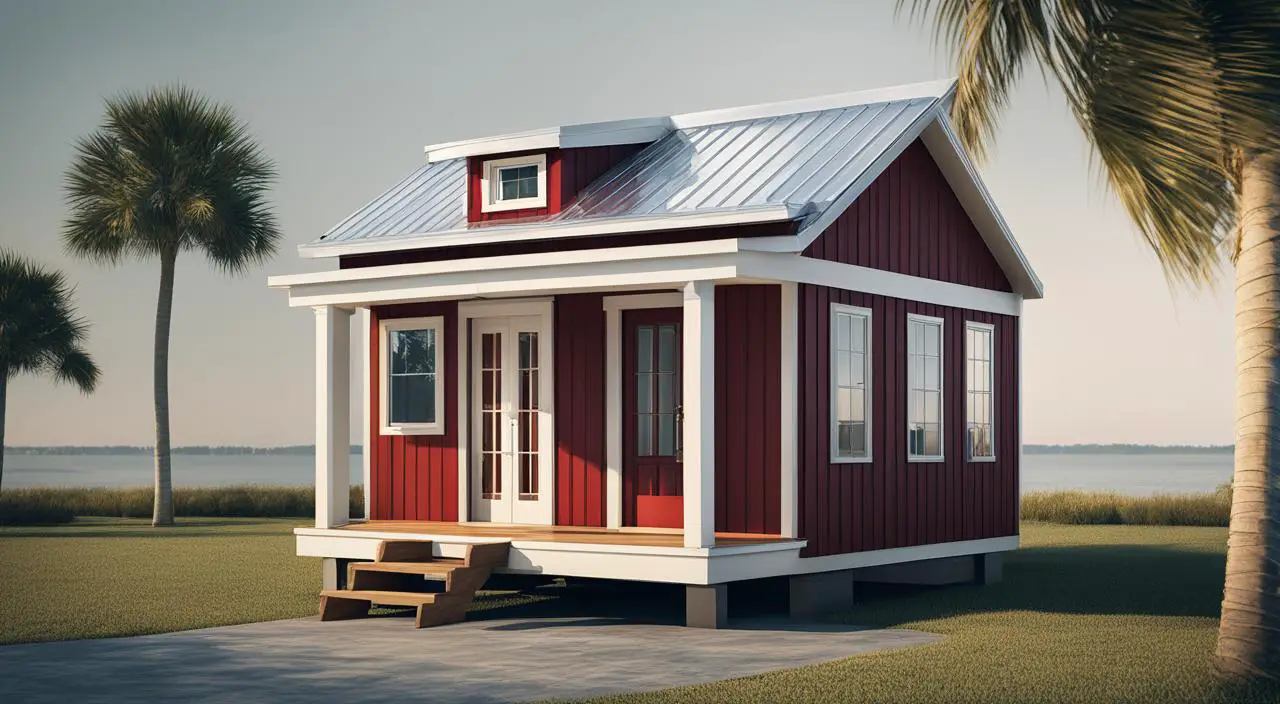
While Florida tiny house laws at the state level are fairly straightforward, it’s important to note that county-specific regulations may vary.
For example, some counties in Florida may have minimum square footage requirements for homes, which could impact the feasibility of building a tiny house in that area.
Others may have specific building codes or tiny home rules that must be followed. To illustrate this point, the following table outlines some of the county-specific regulations related to tiny houses in Florida:
| County | Minimum Square Footage Requirement | Specific Regulations |
|---|---|---|
| Lee County | 400 square feet for a dwelling unit | Tiny house laws in Lee County, Florida state that an Accessory Dwelling Unit (ADU) must be constructed on the same lot as the primary residence, and the property owner must reside on the premises. |
| Broward County | Not specified | Tiny houses must have a minimum width of 8 feet and minimum height of 10 feet, excluding trailer. |
| Volusia County | Not specified | Tiny houses on wheels are not permitted as permanent dwelling units. |
As illustrated in the table, understanding the county-specific regulations in Florida is crucial for anyone interested in building or living in a tiny house.
It’s also worth noting that some counties in Florida have embraced the tiny house movement and have adopted regulations that are more friendly towards tiny houses.
For example, Orange County allows for tiny houses as ADUs, as long as they meet certain size requirements and are built to the Florida Building Code.
By researching county-specific regulations and zoning ordinances, individuals can ensure that they are adhering to all relevant rules and can more easily navigate the process of building and occupying a tiny house in Florida.
Understanding Florida’s Tiny House-Friendly Counties
While tiny houses face some restrictions in Florida, there are a few counties in the state that have welcomed the tiny house movement with open arms.
These counties have implemented friendly regulations or zoning ordinances to accommodate tiny homes, making them the go-to locations for those interested in this unique housing option.
Here are some of the most tiny house-friendly counties in Florida:
| County | Rules and Regulations |
|---|---|
| Lee County | Allows tiny houses on wheels, with a minimum square footage of 400 square feet, and permits backyard placement in residential zones. Additionally, Lee County has amended its land development code to allow for tiny homes as primary residences. |
| Brevard County | Allows tiny houses on wheels, but requires them to be located in an RV park or on land with a primary residence already established. The county also has a minimum square footage requirement of 150 square feet. |
| Escambia County | Allows tiny houses on wheels and has no minimum square footage requirement. However, they must be located in a backyard or on land with an existing primary residence. |
It’s important to note that regulations and zoning ordinances can change over time, so it’s crucial to research and confirm current rules and requirements before making any decisions about building or occupying a tiny house in these or any other Florida counties.
Additionally, it’s worth exploring the possibility of joining existing tiny house communities in Florida.
These communities often have established relationships with local authorities and can provide guidance on navigating the regulations and codes specific to their area.
The Process of Obtaining Permits for Tiny Houses in Florida
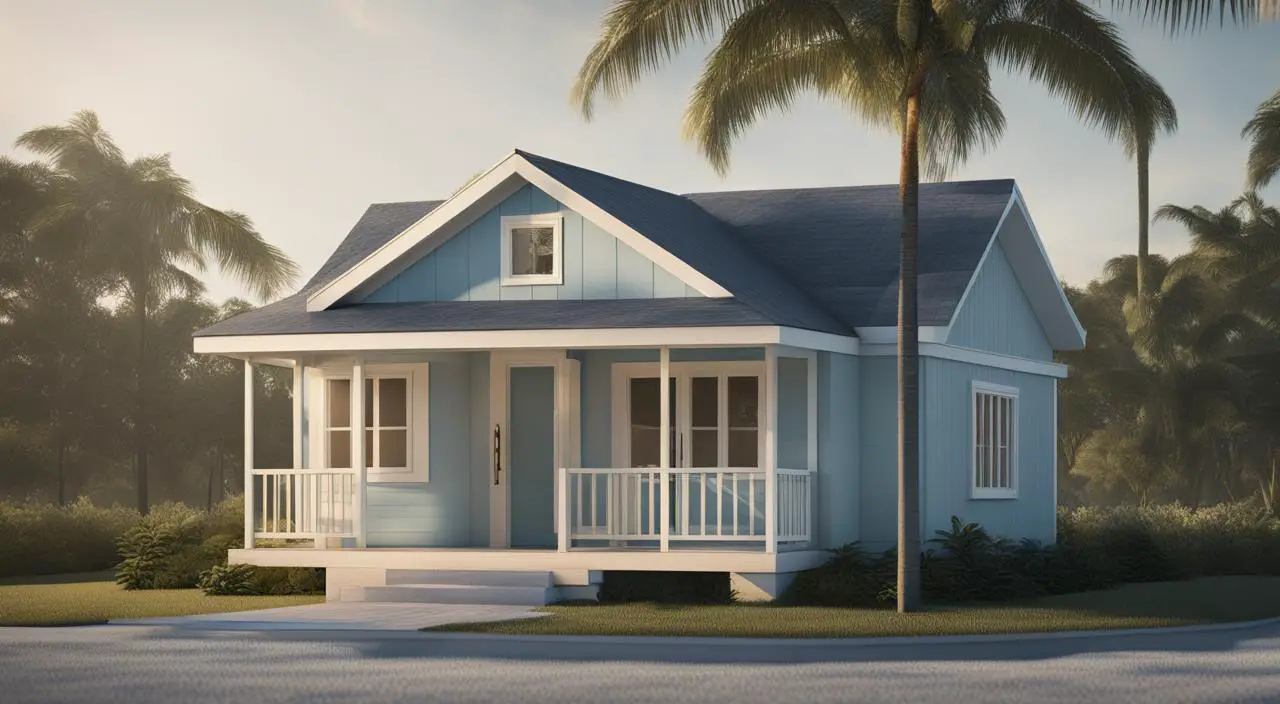
For anyone looking to build or occupy a tiny house in Florida, it is crucial to understand the legal requirements for doing so.
This section will provide a step-by-step guide to obtaining necessary permits, adhering to local zoning ordinances, and navigating any regulations or codes that may apply.
Research Local Regulations and Zoning Codes
To begin the process of obtaining permits for a tiny house, home owners should start by researching local regulations and zoning codes in their area.
This will help them understand any specific requirements or limitations that may apply to building or occupying a tiny house.
It is important to note that zoning codes can vary widely from one county to another in Florida, so it is essential to be aware of any county-specific regulations that may apply.
Home owners should also research the Florida building code and how it applies to tiny house construction.
Submitting Applications and Meeting Building Requirements
Once home owners have a clear understanding of local regulations and zoning codes, they can begin the process of submitting permit applications and meeting building requirements.
This typically involves submitting plans and designs to local building officials for review and approval.
Home owners will need to ensure that they meet all necessary building requirements, which may include meeting minimum square footage requirements, adhering to specific building codes, and obtaining any necessary inspections.
It is also important to note that home owners may need to hire licensed contractors to perform some of the construction work, depending on the specific requirements in their area.
Navigating Local Rules and Regulations
Throughout the permit application and construction process, home owners will need to navigate a variety of local rules and regulations.
This may include obtaining any necessary zoning variances, adhering to land use laws, and ensuring compliance with all relevant building codes.
It is important to work closely with local building officials and other relevant authorities to ensure that all legal requirements are met throughout the process.
This will help to ensure a smooth and compliant construction or occupancy process.
Understanding Legal and Zoning Codes for Tiny House Wheels
For those looking to build or occupy a tiny house on wheels, it is important to understand any specific legal and zoning codes that may apply.
In some cases, tiny houses on wheels may be subject to different building requirements and restrictions than traditional tiny houses.
Home owners will need to research any specific guidelines or provisions related to tiny houses on wheels in their area.
This may include obtaining special permits or meeting additional building requirements.
In conclusion, navigating the permit process for tiny houses in Florida can be complex, but with a clear understanding of local regulations.
Building requirements, and legal considerations, home owners can ensure a compliant and successful construction or occupancy process.
Exploring Tiny House Communities and Living Options in Florida
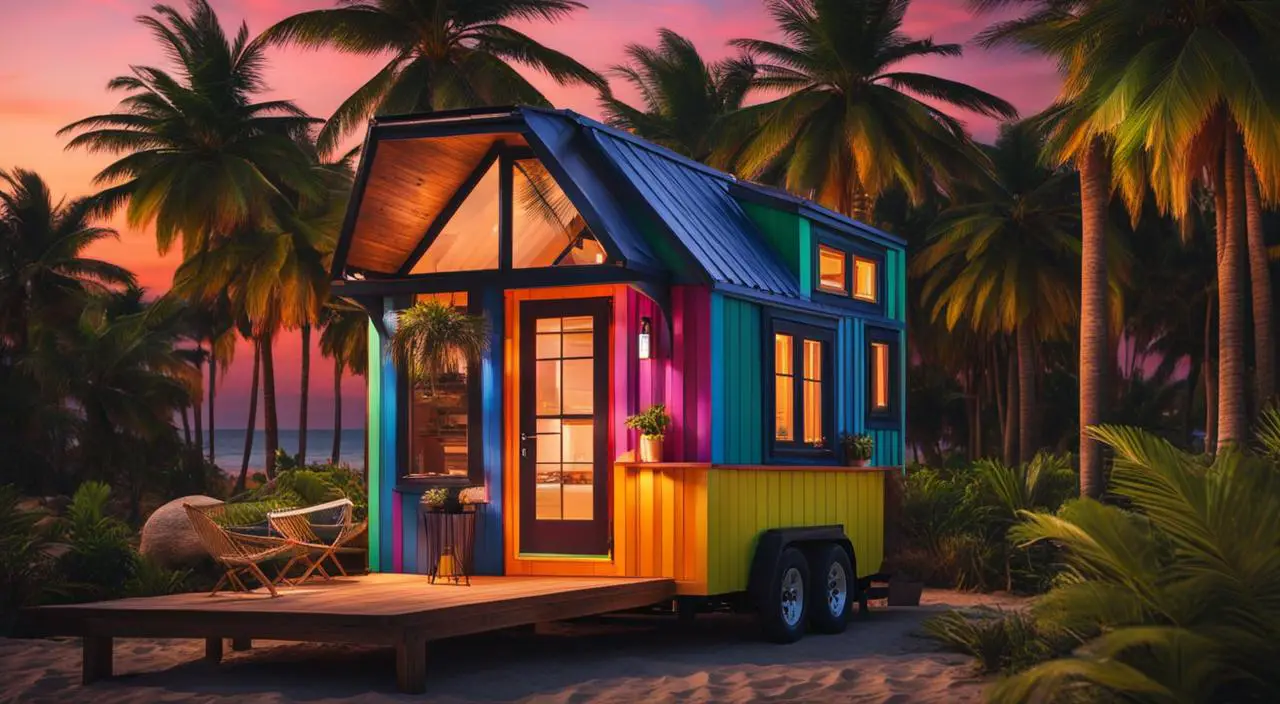
Florida is one of the most popular states for tiny house enthusiasts due to its mild climate, coastal beauty, and relatively low cost of living.
While tiny houses on wheels were initially the focus of the movement, more and more people are opting for permanent installations, often on foundations, which require a different set of zoning and building regulations.
The following information provides an overview of the rules and regulations for tiny house living in Florida.
General Regulations
Florida has no specific legislation or regulations for tiny homes, which means that regulations and codes are typically determined at the local level.
As a result, tiny house regulations can vary significantly from county to county, making research paramount for anyone interested in building or occupying a tiny home in Florida.
The first step is to research the county’s zoning and building codes, and to see if tiny homes are explicitly allowed or not.
As for size, according to the Florida Building Code, a dwelling unit must have a minimum square footage of 400 square feet.
This means that a home that is smaller than 400 square feet may not be legally permissible in certain counties.
It is imperative to check with the county where you plan to live to understand the regulations and restrictions related to tiny houses.
Can I put a Tiny House in my Backyard in Florida?
Florida has no statewide law that governs the legality of living in a tiny home on a residential property; it is primarily left up to zoning ordinances and building codes.
Some counties may allow a tiny home as an accessory dwelling unit (ADU) in the backyard of an existing home for family members or caregivers.
However, owning and living in a tiny house on wheels in Florida is more complicated, and the regulations vary significantly by county.
Are Tiny Houses Legal in Florida?
The legality of tiny homes in Florida depends entirely on the zoning and building codes in the county where you plan to live.
Some counties, such as Alachua, Brevard, and Sarasota, have been deemed “tiny house-friendly,” while others may have significant restrictions or bans on tiny homes altogether.
Small House Codes Florida
The Florida Building Code, which is used statewide, requires that all dwellings meet certain building standards, including foundation, electrical, and plumbing requirements.
Many builders of tiny homes either build to these standards or exceed them, which helps to ensure compliance with county requirements.
Tiny House Laws in Lee County Florida
Lee County has recently adopted the Florida Building Code and permits tiny homes to be constructed under certain conditions.
They require that the home be a minimum of 400 square feet, be tied into the local sewer system, and follow the local building code.
However, each county has its own set of rules and regulations, so it is necessary to check the local requirements.
Where are Tiny Homes Allowed in Florida?
As previously mentioned, the rules and regulations surrounding tiny homes in Florida vary from county to county.
Some counties such as Alachua, Brevard, and Sarasota have established zoning ordinances and building codes that accommodate tiny homes while other counties may not have any regulations in place.
The easiest way to find out where tiny homes are allowed in Florida is to contact the building department or zoning board of the county you are interested in living in.
Important Considerations for Tiny House Construction in Florida
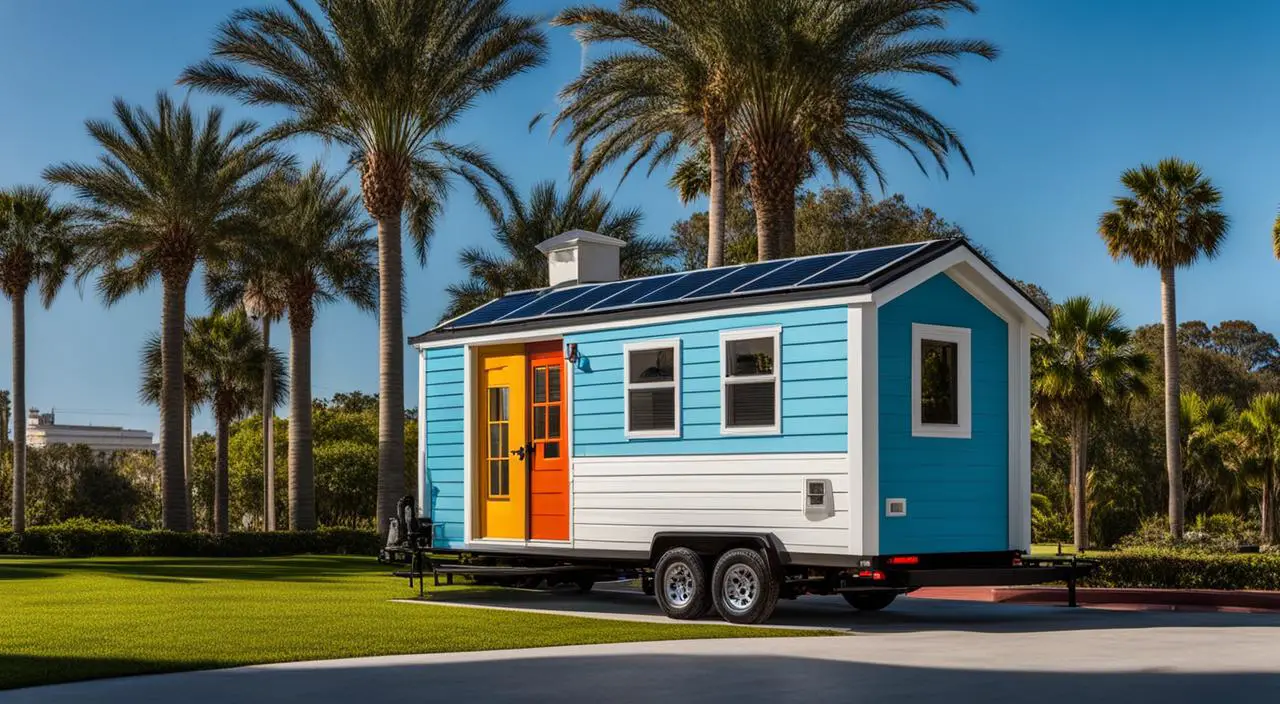
Florida has specific regulations and legal requirements for building and occupying a tiny house.
Before beginning construction, it is essential to understand zoning laws, building codes, and permits required by local municipalities.
Regulations for Tiny Houses in Florida: While the state has not yet adopted any laws specifically addressing tiny houses, several municipalities and counties have enacted their regulations.
These regulations may include minimum square footage requirements, restrictions on using tiny homes as primary residences, and requirements for site-built homes on wheels.
Legal Requirements for Tiny Houses in Florida: Florida’s building code requires that all new residential structures conform to the Florida Building Code.
This means that tiny houses must meet the same standards as site-built homes, including minimum square footage requirements, proper insulation, and plumbing and electrical systems.
Zoning Laws for Tiny Houses in Florida: Zoning laws regulate the use and development of land within a municipality.
It is essential to research the zoning codes in the specific area where the tiny house will be placed before beginning construction.
Zoning laws can dictate where a tiny house can be located on a property, the minimum lot size, and the maximum occupancy of a dwelling.
Building Codes for Tiny Houses in Florida: Building codes prescribe specific standards for the construction and safety of structures.
Florida has adopted the International Residential Code (IRC) as its statewide building code.
Tiny houses must meet the same standards as traditional homes to be compliant with the IRC, including minimum ceiling height requirements and proper ventilation.
Permits for Tiny Houses in Florida: Permits are required by local municipalities to ensure that construction complies with zoning laws and building codes.
Requirements for permits vary by location, but generally, they are required for new construction, additions to existing structures, and electrical and plumbing work.
Restrictions on Tiny Houses in Florida: Several counties in Florida have placed restrictions on tiny houses, including Lee County, which has a minimum square footage requirement of 400 square feet for residential structures.
It is important to research county-specific regulations before building a tiny house.
Florida Tiny House Legislation: Despite limitations, tiny house enthusiasts and advocates are pushing for statewide legislation to make tiny house construction and occupancy more accessible.
Several bills have been introduced in the Florida legislature, but none have been passed as of yet.

Conclusion
In conclusion, Florida’s tiny house laws and regulations can be complex and varied, but it is important for anyone interested in living in or building a tiny house in the state to understand and comply with them.
As discussed in this article, zoning requirements, legalities, and county-specific regulations can all impact the placement and construction of a tiny house.
It is crucial to research and follow the regulations in your specific area to ensure a smooth and compliant process.
For those looking to join the tiny house movement in Florida, there are a variety of living options available, including backyard placement, tiny house communities, and other alternative living arrangements.
However, it is important to note that there may be restrictions or limitations in certain areas.
Ultimately, with careful planning, research, and attention to legal requirements, anyone can successfully live in or build a tiny house in Florida.
With its warm climate and unique charm, the state is a prime location for tiny house enthusiasts looking for an alternative way of living.
Other related articles
- Tiny House Laws Indiana: Unlocking the Secrets
- Tiny House Laws in Massachusetts: The Ins and Outs
- Tiny House Laws Colorado: A Friendly Guide
- Tiny House Laws in Florida: Everything You Need to Know
- Understanding Tiny House Laws in Virginia: A Quick Guide
- Tiny House Laws Wisconsin: Understanding The Law

Arc. Joseph Benson the CEO of Free tiny homes, Free Tiny Homes is a free, open-source, collaborative resource for anyone interested in building their own tiny home…


